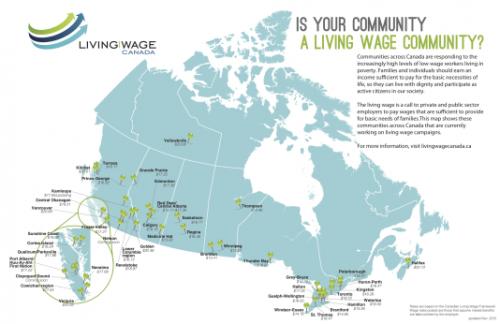Big change doesn't just click on, it occurs over time, starting out often as weak signals of the change to come. Sometimes it’s like the old frog in the boiling water story. Put the frog in when the water is cool and turn up the flame and eventually the frog realizes its plight, just too late to adjust, to escape. For years, donor giving has been changing. Charities have become increasingly dependent on larger gifts from fewer donors. As the economy has served to increase the income and wealth gap between the small numbers of wealthy and the rest of everyone else, we have seen food bank use escalate and a growing number of workers living pay check to pay check. Job security is no longer a reasonable expectation for a growing number of people, much less the chance for advancement. Employee supported pensions are no longer the norm and health and dental benefits are harder to come by for low income workers and many who do not yet qualify as “low income” workforce members.
For years, donor giving has been changing. Charities have become increasingly dependent on larger gifts from fewer donors. As the economy has served to increase the income and wealth gap between the small numbers of wealthy and the rest of everyone else, we have seen food bank use escalate and a growing number of workers living pay check to pay check. Job security is no longer a reasonable expectation for a growing number of people, much less the chance for advancement. Employee supported pensions are no longer the norm and health and dental benefits are harder to come by for low income workers and many who do not yet qualify as “low income” workforce members.
The adaptations charities have taken have been focused on how to grow revenues through different sources of revenues. Funders are looking at alternatives too, given their inability to fund all the good things that come their way. Crowdfunding, social enterprise, impact investing, social purpose businesses are among the more recent options in financing social good.
GDP growth has been slowing, 80% of Canadian incomes are not increasing or if they are, at far less a rate, the restructuring of the job market is creating more insecure and benefit-less employment. the ratio of workers to seniors is dramatically decreasing. Key drivers like oil prices are in turmoil. Consumer debt keeps increasing. The numbers of people making $15 or less are growing as businesses work harder to cut back on expenses in order to feed more profits to investors.

Governments, or some of them, are starting to notice. Thus the increase in minimum wage that the Alberta Government is implementing, despite the cries of those whose profits depend on low wages. Across the nation, communities and businesses are exploring and many are implementing living wage jobs. In Ontario, the government is talking about a guaranteed annual income, stress on talking.
All this makes sense, right? But perhaps the signals about charitable giving and low incomes and inadequate wages are actually pointing at a more significant change-challenge: how to change our capitalistic systems to benefit the majority of citizens.
I wonder if the welcome changes mentioned above are actually the “right” responses to the economic signals we need to grapple with. I suggest our responses to these signals must go further than adjusting wages, welfare rates, and launching subsidized transportation or housing.
Think about it. The federal government’s Child Tax Benefit will indeed lift thousands of Canadians out of poverty. In Edmonton, the recent partnership between the provincial and municipal governments will benefit 20,000 low income families living in poverty. It’s good stuff. I support it, but I am still worried.
Why?
Because, it seems to me that governments and charities are often trying to make a bad thing not as bad. That seems to be our systemic practice across all jurisdictions: welfare rates are so low that recipients cannot pay their bills; minimum wages are set primarily to benefit business, not minimum wage workers.
In British Columbia, many communities have identified a living wage for workers in their community. But a single mom with two young kids working as a teacher cannot exist on the identified living wage in any of those BC communities. And that’s according to that provincial government’s own data on what it costs to live in those communities.
I don’t hear anyone really asking why governments must subsidize the economy and the profits of business this way. Is it heresy to see the Child Tax Benefit as a program that allows business to keep wages low?
A healthy community requires an economy that works effectively for the majority. This is not happening. The signals are all over the place.
It is not popular to suggest that our social democracy and our capitalistic economy are not working. Then again most big change that has come about in our lives did not start out as popular.
We can’t end poverty while, at the same time, protecting our current practice of keeping people poor in an economy that debilitates hope and renders that old notion of “pulling yourself up the bootstraps” to be what it has always been: our excuse for not truly helping people move out of poverty.
What signals are you hearing about the need for transformational change?
Further Your Learning





